How to Get into TV Music – We Interview an Expert
Sheridan Tongue has worked in pretty much every part of the music business over his career, but is now best known for providing the TV music for major productions such as Silent Witness, Spooks and Wonders Of The Solar System, as well as producing music under the name IN-IS. In many ways, his career started out […]
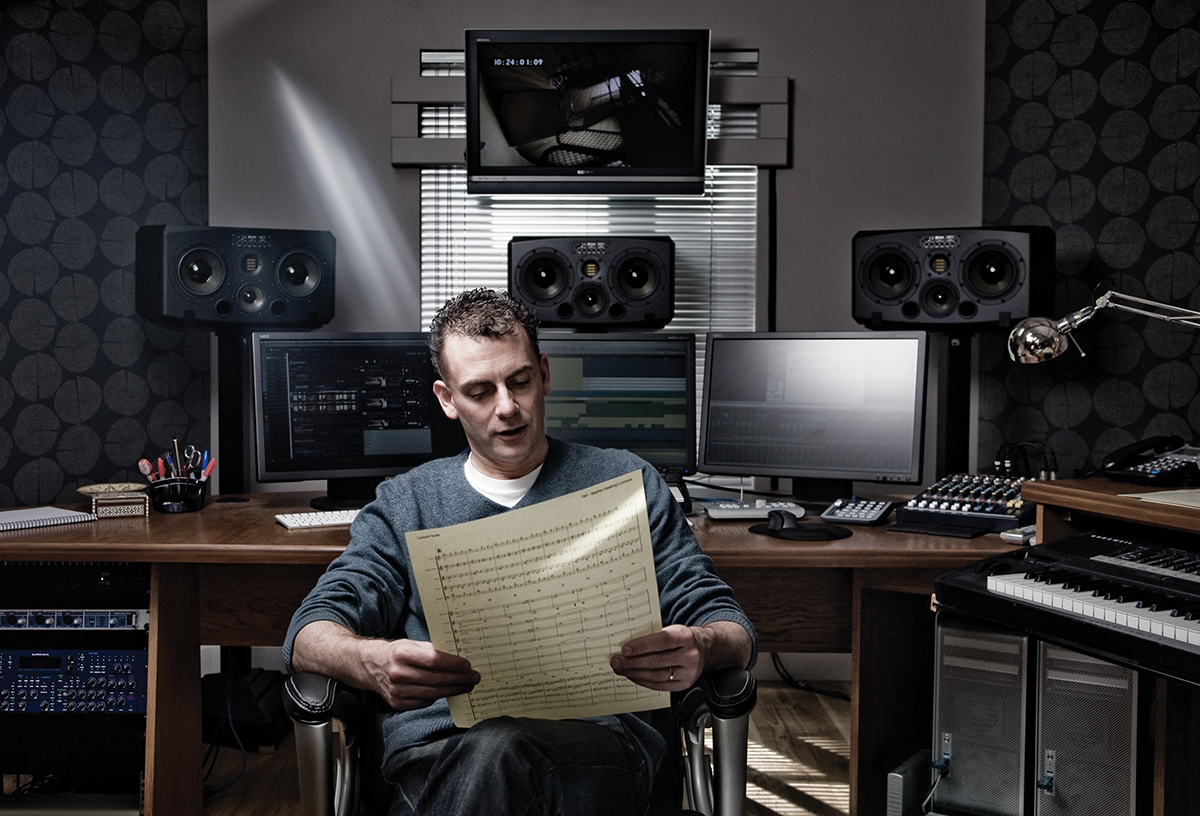
Sheridan Tongue has worked in pretty much every part of the music business over his career, but is now best known for providing the TV music for major productions such as Silent Witness, Spooks and Wonders Of The Solar System, as well as producing music under the name IN-IS.
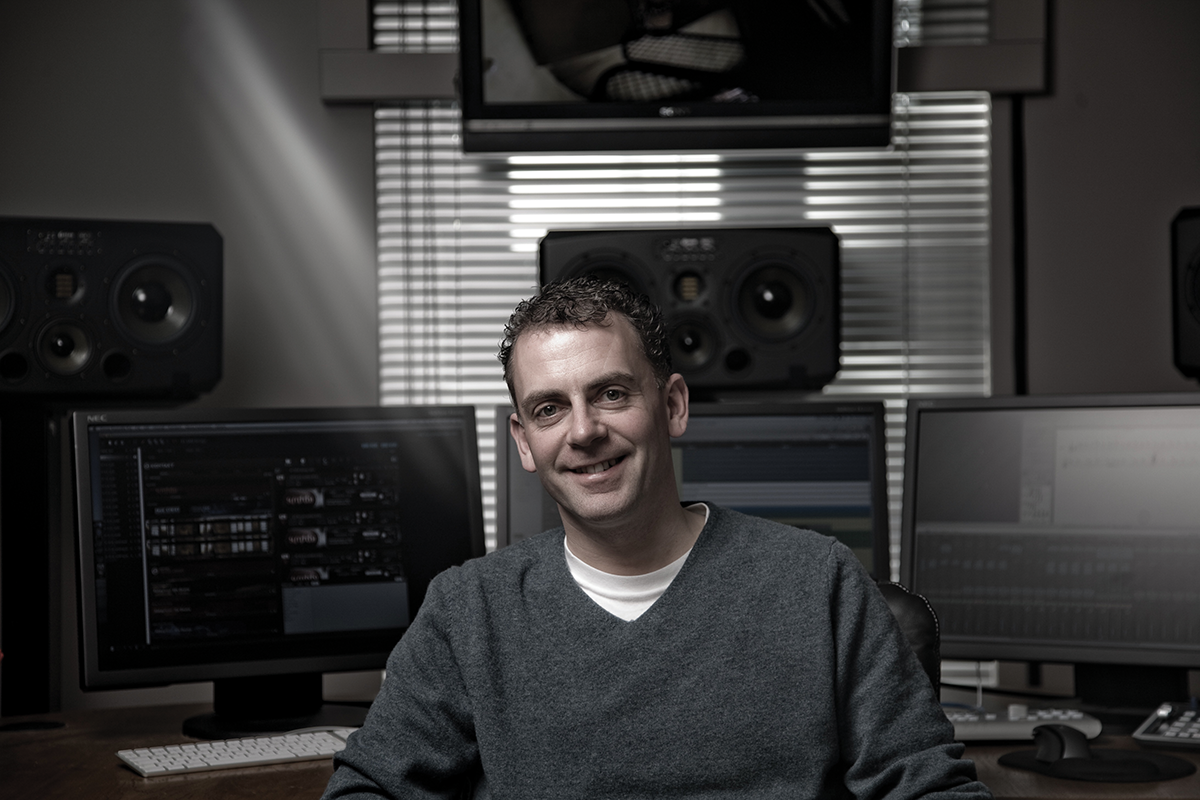
In many ways, his career started out along traditional lines, studying Music And Sound Recording for a degree from the University Of Surrey Tonmeister Course. After that, though, he pretty much dabbled in everything as he worked his way up the ladder…
MusicTech: So Sheridan, talk us through how you became a successful TV music maker?
Sheridan Tongue: After graduating, I worked in the pop world for many years as a remixer, arranger, keyboard player and moved into commercials, short films and finally, TV drama. It gave me a fantastic grounding and knowledge in the music business and I also made a lot of very good contacts at that time.
I think that my leftfield approach I developed from my pop-world background has always appealed to television directors and producers.
MT: What have been the most memorable of your high-profile projects?
ST: Scoring the music for Silent Witness has been a very enjoyable journey. I get to work with a lot of great directors and excellent scripts for every series. I was asked to score Silent Witness as the producer at the time really like my showreel, I had just completed Series 3 of Spooks and had a BAFTA nomination for that series.
Another highlight of my career was Brian Cox’s first major series, Wonders Of The Solar System, as well as Stephen Hawking’s Into The Universe.
MT: What do you think you bring to a project?
ST: I like to think that I bring a very original and unique soundtrack to a television drama or documentary. One of the main reasons that I was asked to score Into The Universe with Stephen Hawking [a major series for the Discovery Channel] was that my showreel was full of tracks that didn’t sound like tracks from a space documentary.
Directors are always looking for original and inspiring music and I think that mine ticked the box for that series. I also really enjoy being part of a team and when scoring to picture, there is a huge amount of discussion and meetings and ultimately, my role is to fulfil the vision of the director.
I have been lucky to work with many great directors and I am always learning new things about music and picture from them – it can be a very rewarding and stimulating relationship.
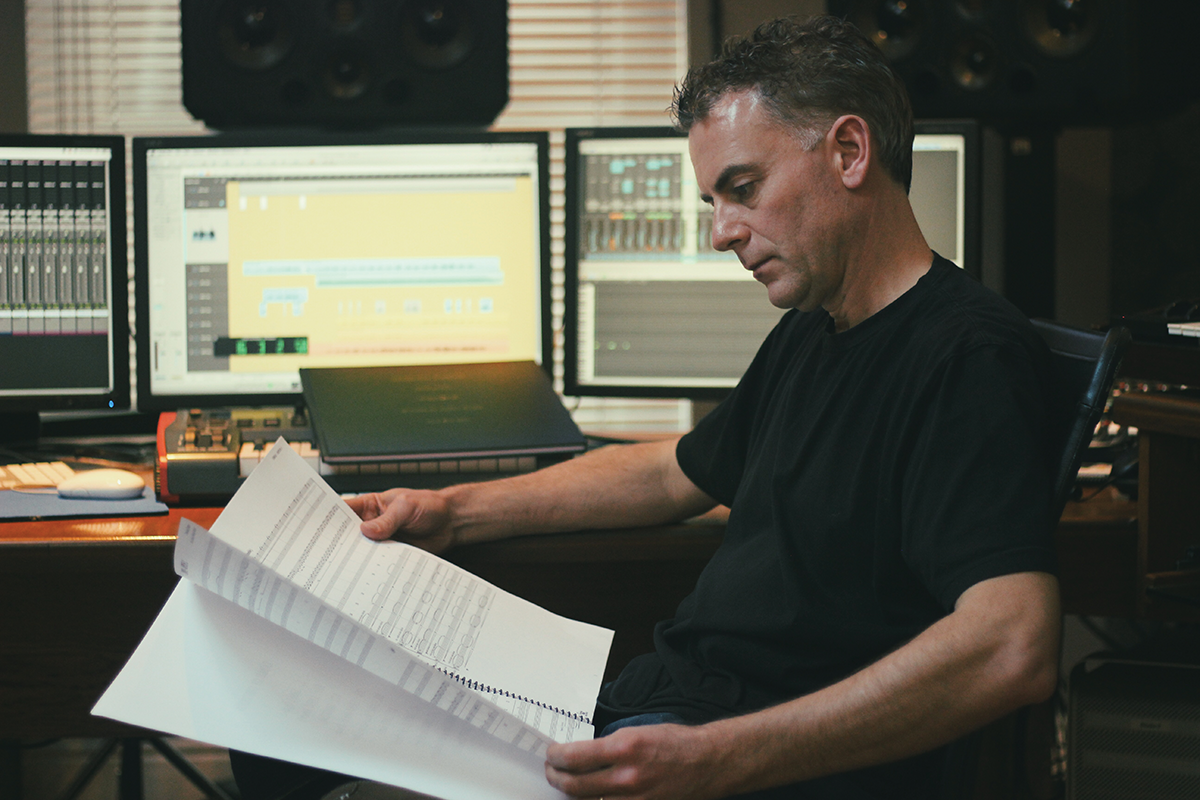
The TV Music Composing Process
MT: Writing to picture: how does the process work for you?
ST: For a TV drama, I quite often get sent a script as the first step. Then I like to speak to the director to establish a rough idea of the vision: what is the essence of this show, what would they like the music to achieve, how much music is there, with orchestra or all electronic? I’m just trying to build up a picture in my head on the best way to approach it – every show is different and requires its own preparation.
Once shooting has begun, then when I begin to get rough scenes from the edit – that is the most inspiring point for me, as I can begin to experiment and really get into the essence of the show. The edit process can take four to six weeks and by the time the picture is locked (i.e, the Final Cut), I like to have the style nailed down.
At this stage, the editor will be using my music, so everyone can hear the tone and style and provide feedback or suggestions at some stage. Then I have a meeting with the director, producer and editor and we watch the cut together, going though every scene and discussing where there will be music and asking, ‘What does the music need to do?’
Then I am usually given between two and three weeks to compose and record all the music for a 60-minute show. Quite often, I mock up cues with samples and play them to the director before I record them with musicians. Sometimes, though, I will go ahead and record solo musicians quite early on in the composing process – so my tracks are always developing.
MT: How long does a typical project run: shortest and longest?
ST: An eight-part drama of 60-minute episodes can take me about six months to score – it is a long and complex process. Having now composed many prime-time television dramas, I’m very comfortable about scoring them.
A score for a one-off documentary can sometimes have quite a quick turnaround. I composed the music for Stephen Hawking’s Favorite Places in about two to three weeks.

MT: Describe some of the highs and lows of making TV Music?
ST: The highs are certainly when I play my music to the director of a show for the first time in my studio and hopefully have a fantastic response! It’s incredibly satisfying to be part of a major TV production and know that my music is playing an important role. When the sum of the individual parts of a production add up to something greater than the whole, then I know it is working. It is lovely when viewers write to me when they enjoy my music in shows.
Another high this year has been the release of my debut album, Seven Days, by IN-IS. To be able to record an album of my own music with some of the best musicians in the world at Air
Studios in London has been a fantastic experience. The whole album has taken me about two years’ work and I’m very proud of the tracks – they’re a fusion of upright piano, live harp, live strings and electronics. The album was mixed by Jake Jackson.
The lows are probably when there are a number of producers or executive producers involved where each of their musical tastes and requirements are different. Then the process can become quite political, with more meetings and more discussions. Ultimately, we end up in the same place, but sometimes it can just take a lot longer to get there.
The Gear
MT: Tell us a little about your studio?
ST: My studio has evolved over time to be a very efficient workspace. It’s based around Logic, Pro Tools and Adams S3X-H monitors. I have a custom-made PC fully loaded with RAM that runs my bespoke sample library. I’ve used Logic now for many years – and have always considered it to be the ultimate musician’s sequencer. For me, the best thing about Logic is the very solid integration of audio and the score edit facility.
I also like that the environment page can be really finely tuned and modified to my specific needs. I have a very bespoke setup in the environment page that’s evolved over many years that enables me to run my sample library via Vienna Ensemble Pro on a custom-made PC, with a lot of control from within Logic.
Native Instrument’s Kontakt is the best sampler by far, because of the programmability. The Zebra soft synth has grown on me over time – again, great for programming and creating new sounds. I also use a Moog Sub 37: I love the sound of all Moogs, but this has such a good USB control, it’s great.
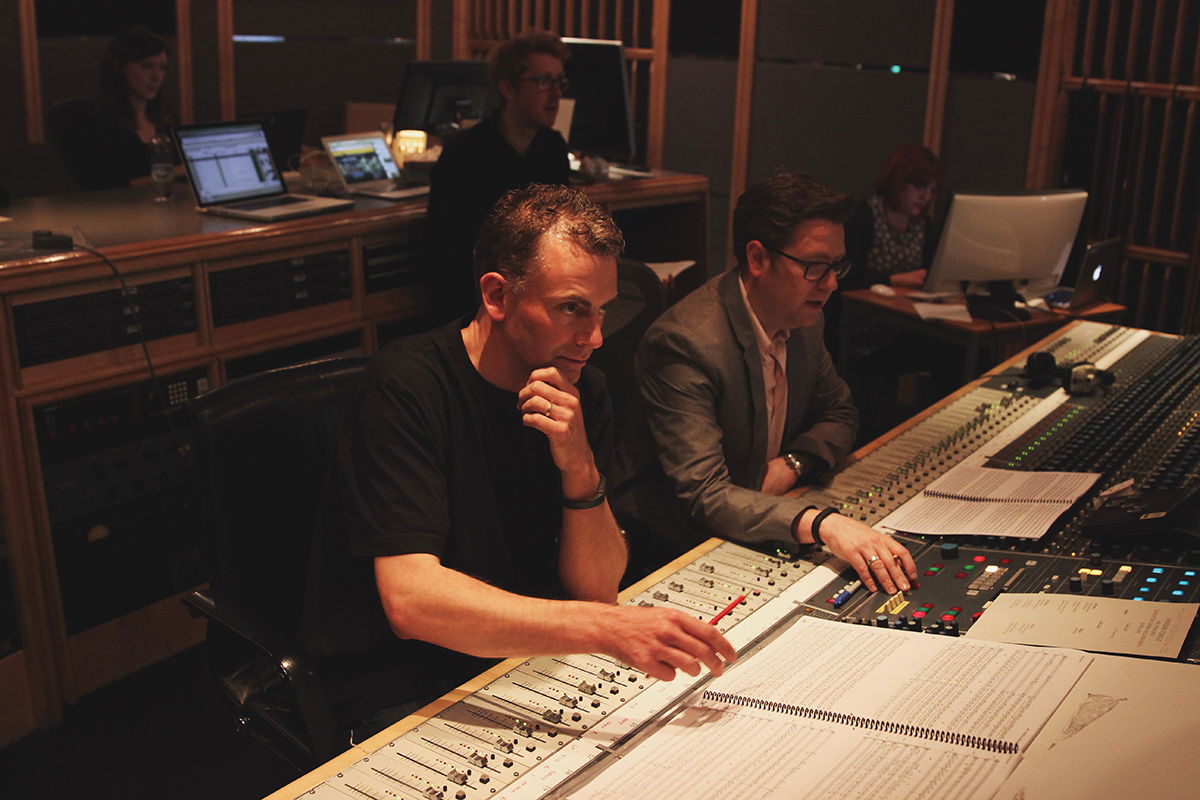
MT: What about outboard?
ST: The UREI 1176 compressor plug-in from UAD is one of my favourite plug-ins. It’s a very versatile compressor that I find has a very transparent sound – but yet it can bring many things under ‘control’ very quickly: vocals, synth lines, solo instruments.
I used to use the original version of these all the time when I mixed tracks for other people and would often hire in six of them in for a mix session. Altiverb is my favourite reverb. Just a very versatile reverb for large and small spaces.
Get into TV Music – The Advice
MT: So what advice can offer anyone wanting to get into writing music for film and TV?
ST: Get to know as many directors as you can. As you move up the ladder, so will they. And if you’ve done a good job on their first low-budget film, then the chances are they’ll take you on to their next job. Try and meet as many people as you can who work in the film and TV industry and find out how they had their breaks.
This industry can be very much ‘who you know’, alongside your screen composing credits: so you need to building up both of these.
When I started working in the music business, I did many things: writing songs, arranging, session musician, conductor, engineer, remixer, composer, editor, string arranger… Not only did those jobs give me a very good foundation of knowledge in those areas, they also occasionally created unexpected opportunities in the music business that enabled me to slowly move up the ladder.
There were things that I could not have predicted, but which really helped my career.So I always say to people starting out, ‘Try and do as many different things as you can in the music business – and don’t put all your eggs in one basket!’.
MT: Could you give us a rough idea of what you could earn?
ST: The majority of jobs that a composer will do when starting out will probably have no music budget – you will not get paid. If you don’t do the job, then there could be at least another 100 composers who would do the job for nothing. It’s not a principle that I agree with – but it is a realistic view of the music business at the moment. Budgets for music are getting smaller; we are going through very tough times.
So you have to be 100 per cent committed. As you build up your screen credits, you can hopefully begin to command a proper fee for work. If a production really wants you onboard, then they will pay your fee.
When you get to a stage in your career when you are working on bigger budget productions, it’s wise to get an agent. An agent will then negotiate the fee on your behalf. Not only will they probably be able to get you a better deal, but it also means that you don’t have to have any discussions with production about money – your discussions with production can be purely about creative things, which is what they should be.
MT: Could you give us your insider tips and insights for composition?
ST: There’s a temptation when scoring to picture to switch off the sync sound (that is, the dialogue and FX) and just score to picture. This is the wrong way to go about things. The music has to be sympathetic to the sound, as well as the picture or narrative. There’s no point in writing a piano part if there’s quiet dialogue in the scene, as the piano will either mask the dialogue or the music will have to be so low in the mix it won’t be heard.
In my early TV scoring days, I did a track with lots of fast, bright percussion. When the show went out, the music was so low in the mix it sounded like a load of buzzing flies trying to get out of a jar! Also, don’t over-process sounds.
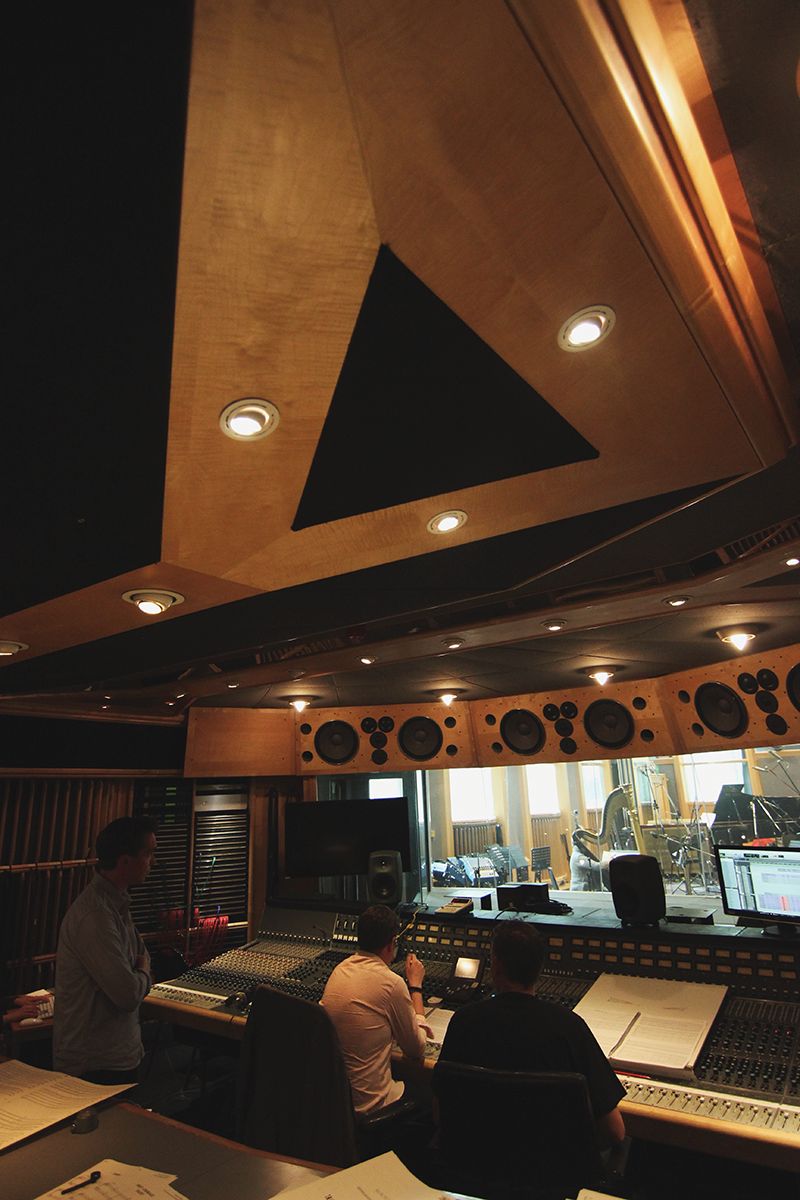
If I find myself having to work too long on a sound by adding processing, the chances are the original sound source is just not right – so replace the original source.
I always prefer a more organic and ‘real’ sound, so I try to work with carefully crafted patches/sounds or real instruments recorded well and fewer plug-ins. I rarely have more that two or three plug-ins on a track – usually a compressor, EQ and maybe something else. I also spend a lot of time creating my own bespoke sound libraries, which I then use in my compositions.
I’ve been doing this for about 15 years and I‘ve recorded many different instruments for these libraries. Directors often tell me that my soundtracks sound like no one else, and I believe that this is one of the reasons.
MT: What have you got planned for the future?
ST: I am working on a composition for a Picasso exhibition at The National Portrait Gallery in London – a musical representation of one of Picasso’s paintings for live strings and electronics.
I’m also working on the music for a new series of Silent Witness, 10 episodes.
Sheridan’s debut Seven Days as IN-IS is out now.